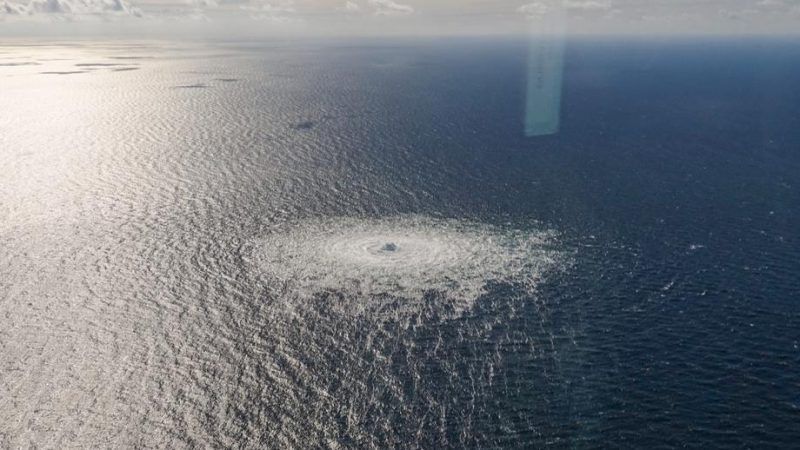Nord Stream pipeline leaks biggest ever, according to scientists
Scientists fear methane leaking from Nord Stream pipelines in Baltic Sea could be one of worst natural gas leaks on record and pose significant climate risks. Neither of two Nord Stream gas pipelines that connect Russia and Germany were operational

Scientists fear that methane leaking from ruptured Nord Stream pipelines in the Baltic Sea could be one of the worst natural gas leaks on record and pose significant climate risks.
Neither of the two Nord Stream gas pipelines that connect Russia and Germany were operational, but both contained natural gas. Most of it is methane, a greenhouse gas which, after carbon dioxide, is the main cause of global warming.
The extent of the leaks is still unclear, but scientists' rough estimates, based on the volume of gas allegedly in one of the pipelines, range between 100,000 and 350,000 tonnes of methane.
Jasmin Cooper, a researcher in the department of chemical engineering at Imperial College London, said there was "a lot of uncertainty" surrounding the leak.

"We know there are three explosions, but we don't know if there are three holes in the sides of the pipe or the size of the fractures," Cooper said. “It is difficult to know how many reach the surface. But it is potentially hundreds of thousands of tons of methane: a fairly large quantity that is pumped into the atmosphere.
Nord Stream 2, designed to increase the flow of gas from Russia to Germany, would have contained 300 million cubic meters of gas when Berlin halted the certification process just before Russia invaded Ukraine.
That volume alone would equal 200,000 tons of methane, Cooper said. If all escaped, it would exceed the 100,000 tons of methane released by the Aliso Canyon eruption, the largest gas leak in US history, which occurred in California in 2015. Aliso had the equivalent in warming half a million cars.
“It has the potential to be one of the biggest gas leaks ever,” Cooper said. “The climate risks linked to the methane leak are quite significant. Methane is a powerful greenhouse gas, 30 times stronger than CO2 over 100 years and more than 80 times stronger over 20 years.

Professor Grant Allen, an earth and environmental science expert at the University of Manchester, said natural processes that convert small amounts of methane to carbon dioxide were unlikely to be able to absorb a large amount. part of the leak.
Allen said: "It's a colossal amount of gas in very big bubbles. If you have small gas sources, nature will help you by digesting the gas. In the Deepwater Horizon spill, the methane was greatly attenuated by bacteria.
“My scientific experience tells me that in a big explosion like this, the methane will not have time to be attenuated by nature. So a significant part is vented as methane gas.
Unlike an oil spill, the gas will not have such a detrimental effect on the marine environment, Allen said. "But in terms of greenhouse gases, it's a reckless and unnecessary release into the atmosphere."
The German environmental agency said there were no containment mechanisms on the pipeline, so all of its contents were likely to escape.
The Danish Energy Agency said on Wednesday that the pipelines contain a total of 778 million cubic meters of natural gas, equivalent to 32% of Denmark's annual CO2 emissions.
This is almost double the original estimate by scientists. This would significantly increase estimates of methane released into the atmosphere, from 200,000 to over 400,000 tonnes. More than half of the gas came out of the pipes and the rest should be gone by Sunday, the agency said.
Jean-Francois Gauthier, vice-president of measurements at commercial methane-measuring satellite company GHGSat, said assessing the total volume of gas emitted is "difficult".
"There is little information on the extent of the injury and whether it is still ongoing," Gauthier said. "If it's a big enough injury, it would drain itself.
"It's safe to say we're talking about hundreds of thousands of tonnes of methane. In terms of leaks, that's certainly a very serious problem. The catastrophic snapshot of this - I've certainly never seen anything like that. as before."
In terms of climate impact, 250,000 tonnes of methane would be equivalent to the impact of 1.3 million cars driven on the road for a year, Gauthier said.
